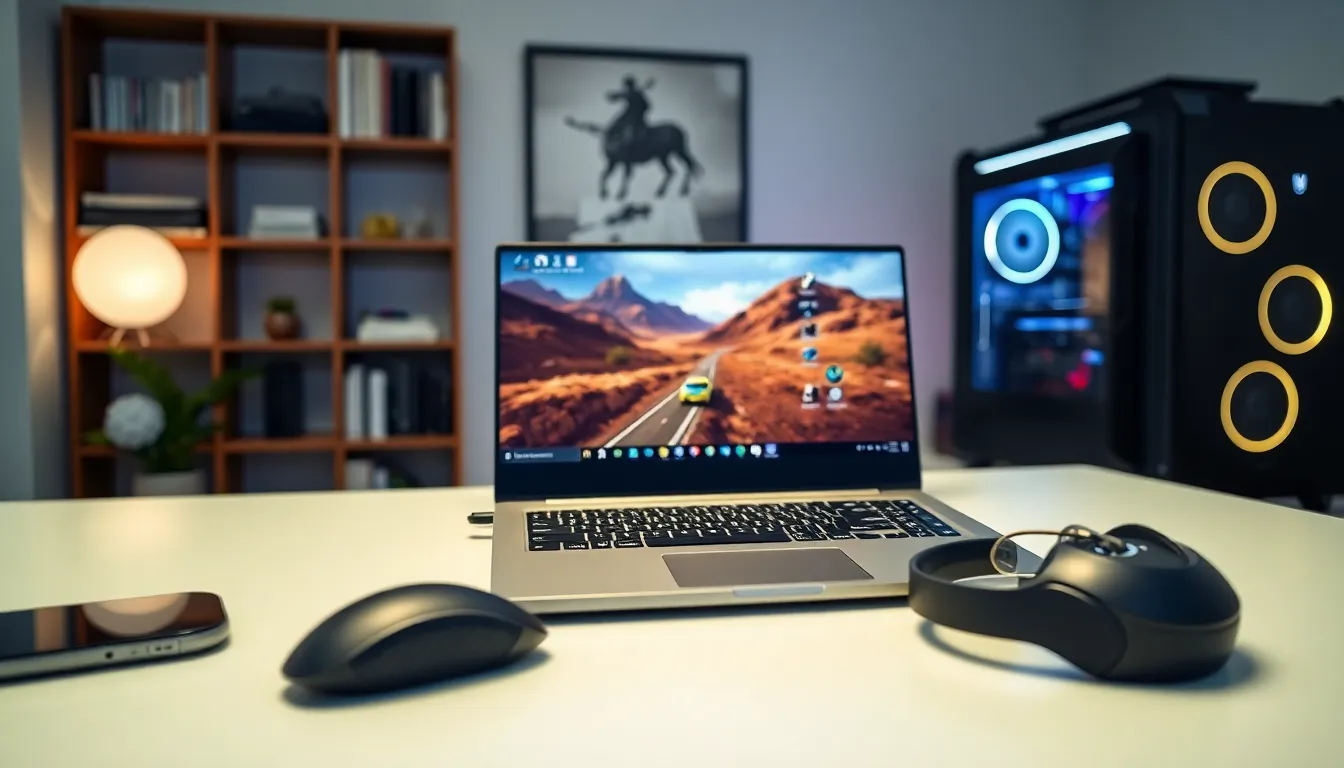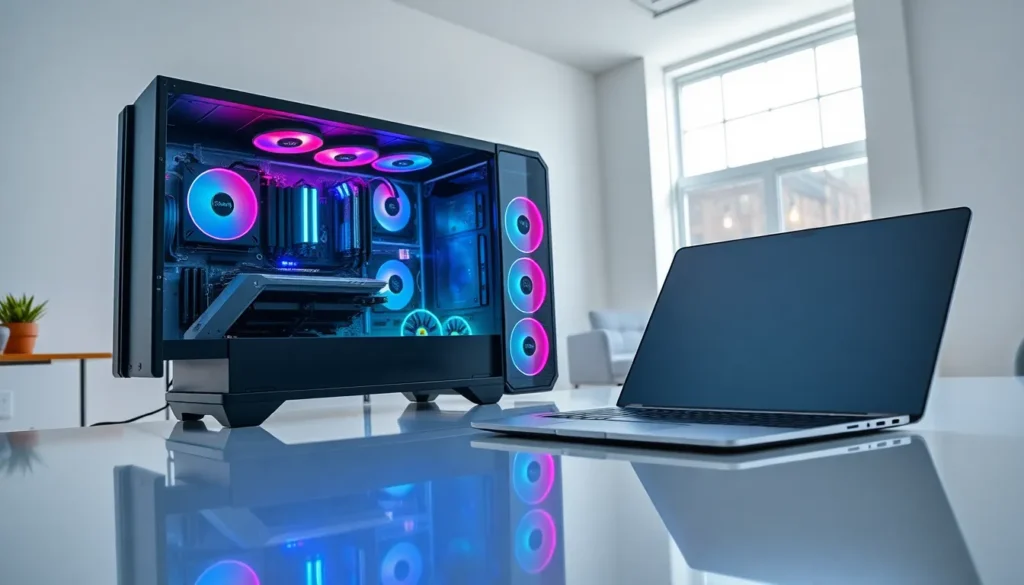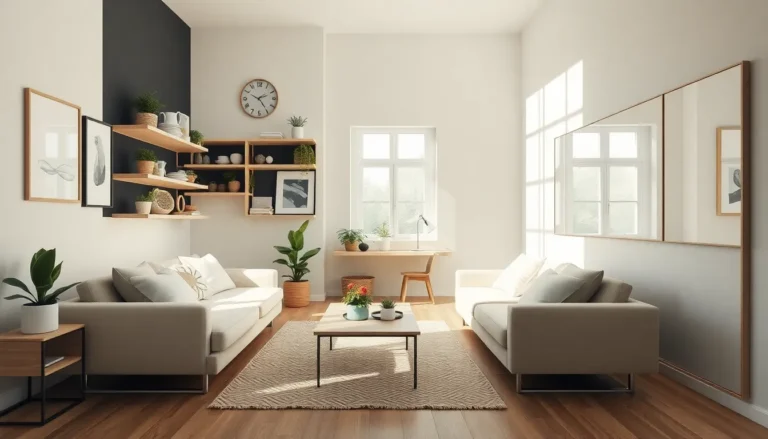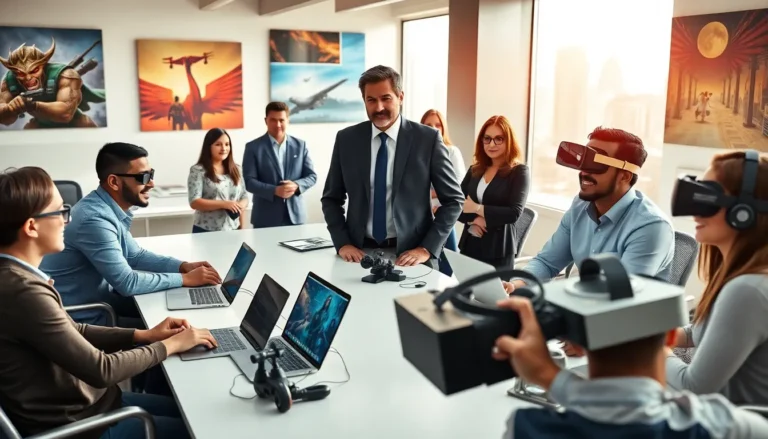Table of Contents
ToggleIn the battle between gaming laptops and PCs, everyone seems to have an opinion. Some folks claim laptops are the future, while others vehemently defend their beloved desktops. With the right tools at your fingertips, which should you choose? Whether you’re on the move or stationed at your battle station, this comprehensive dive will help break down the features, costs, and real-world applications of both gaming laptops and PCs. Buckle up as we navigate the treacherous waters of gaming hardware.
Understanding Gaming Laptops

Specifications and Performance
Gaming laptops have come a long way. Equipped with powerful GPUs and CPUs, many can easily handle the latest AAA titles. Generally, you’ll find components like Intel Core i7 or AMD Ryzen 7 processors alongside Nvidia GeForce or AMD Radeon graphics cards. These machines are designed to deliver solid frame rates, albeit often sacrificing peak performance compared to their desktop counterparts.
Portability and Design
One of the standout features of gaming laptops is their portability. Lightweight designs enable gamers to take their adventures anywhere, be it a friend’s house or a cozy café. Thin profiles and modern aesthetics allow them to fit in well even outside gaming scenarios. For many gamers, the ability to game on the go tips the scales in favor of laptops.
Battery Life and Power Management
Now, let’s talk about battery life. While most gaming laptops can last a few hours under light use, the reality is that gaming drains the battery faster than a kid in a candy store. Users often find themselves tethered to a wall outlet while gaming, which somewhat diminishes the portability factor. But, manufacturers are improving battery efficiency steadily, which is a plus.
Exploring Gaming PCs
Customization and Upgrade Potential
On the other side of the spectrum, gaming PCs offer unmatched customization and upgrade options. Want to swap out that GPU for a shiny new model? Go for it. Users can select parts tailored to their specific preferences, be it aesthetics, performance, or budget. This flexibility often leads to gaming rigs that can outperform laptops significantly, especially in demanding environments.
Cooling Solutions and Performance Stability
The cooling systems in gaming PCs are another significant advantage. With ample airflow and high-performance cooling solutions, PCs maintain lower temperatures during intense gaming sessions. In contrast, laptops might throttle performance to keep their temperatures in check. This means PCs can deliver consistent performance across longer gaming sessions, a crucial factor for competitive gamers.
Cost Considerations
Initial Investment vs Long-Term Value
When it comes to cost, gaming laptops typically have a higher sticker price for similar specs compared to PCs. But, it’s essential to think about long-term value. Gaming PCs usually provide better performance per dollar spent and can be upgraded over time, making them a more economical choice in the long run.
Price Comparisons of Laptops and PCs
For instance, a mid-range gaming laptop may range from $1,000 to $1,500, whereas building a gaming PC with similar capabilities might cost between $800 and $1,200. The price difference can be significant when it comes to higher-end builds, making desktops appealing to budget-conscious gamers.
Use Cases: Which Is Right for You?
Casual vs Competitive Gaming
For casual gamers who play occasionally or enjoy gaming with friends, a portable gaming laptop might be a perfect fit. But for competitive players who prioritize performance and speed, a powerful gaming PC often becomes the choice for the need for the quickest reflexes.
Space and Setup Requirements
Space also plays a big role in the decision. If you have a dedicated gaming room, a powerful gaming PC makes sense. But, if you’re living in a small apartment, a sleek gaming laptop which requires minimal space can thrive in tight quarters.







